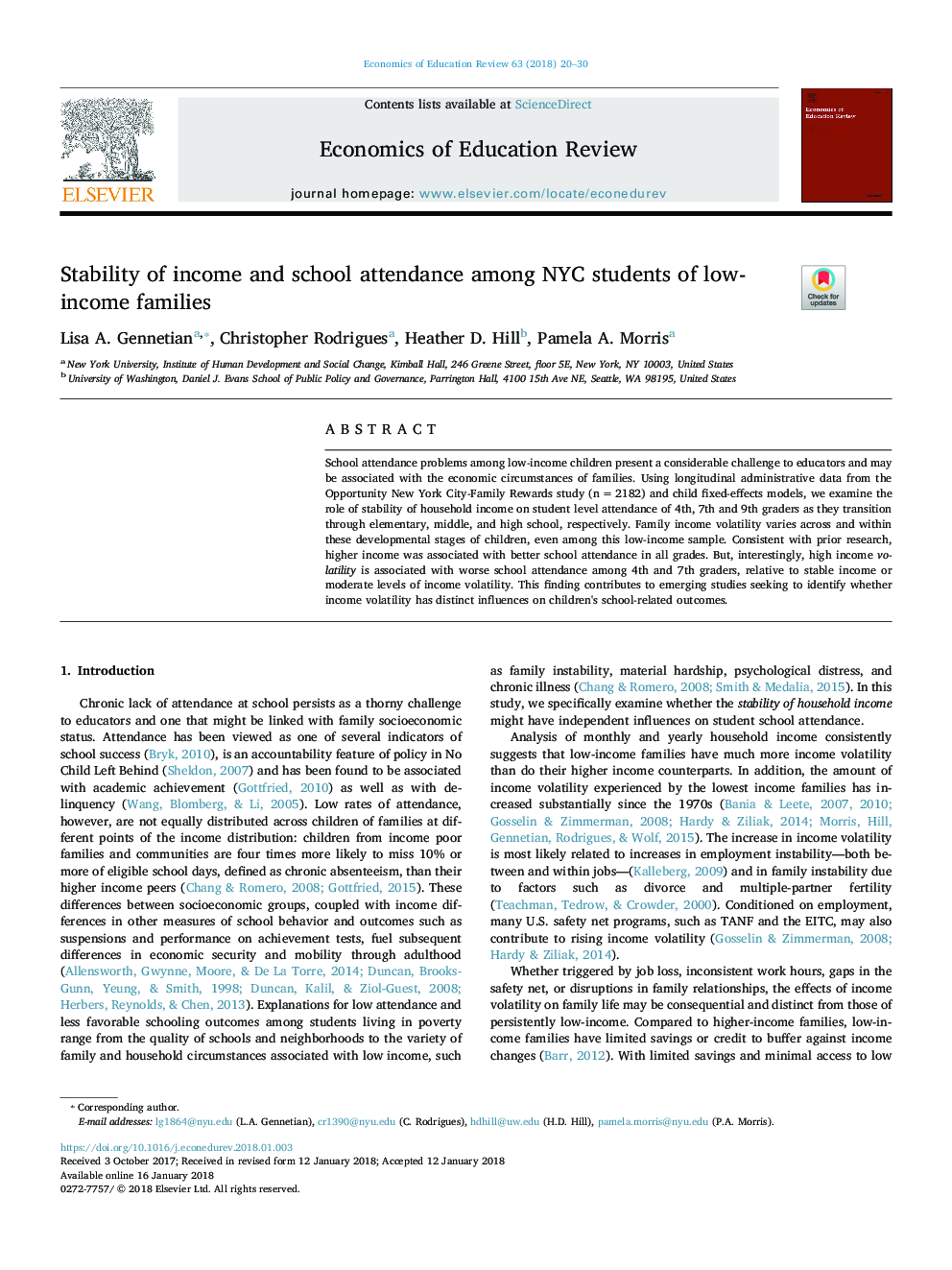| Article ID | Journal | Published Year | Pages | File Type |
|---|---|---|---|---|
| 6840791 | Economics of Education Review | 2018 | 11 Pages |
Abstract
School attendance problems among low-income children present a considerable challenge to educators and may be associated with the economic circumstances of families. Using longitudinal administrative data from the Opportunity New York City-Family Rewards study (nâ¯=â¯2182) and child fixed-effects models, we examine the role of stability of household income on student level attendance of 4th, 7th and 9th graders as they transition through elementary, middle, and high school, respectively. Family income volatility varies across and within these developmental stages of children, even among this low-income sample. Consistent with prior research, higher income was associated with better school attendance in all grades. But, interestingly, high income volatility is associated with worse school attendance among 4th and 7th graders, relative to stable income or moderate levels of income volatility. This finding contributes to emerging studies seeking to identify whether income volatility has distinct influences on children's school-related outcomes.
Related Topics
Social Sciences and Humanities
Economics, Econometrics and Finance
Economics and Econometrics
Authors
Lisa A. Gennetian, Christopher Rodrigues, Heather D. Hill, Pamela A. Morris,
